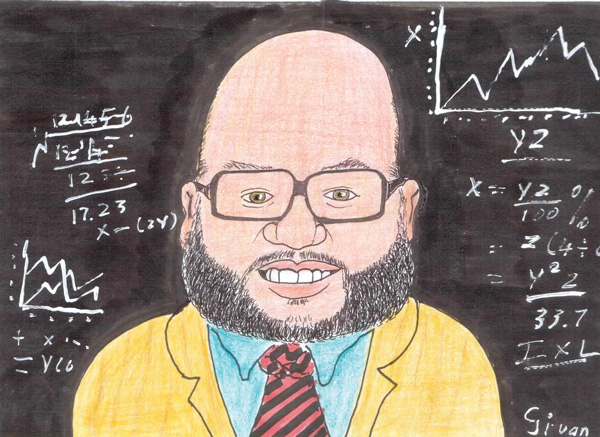
Empathy is a leadership skill that prevents many HR blunders

By Coen Welsh of Capacity Trust.
A recent grievance by an employee at the NCAA made its way into the public domain. This went as far as receiving attention at government level. This article does not attempt to address the merits of the grievance, nor the actions of the various parties to the dispute, but it begs the question why this was not addressed in house?
An article by The Ethics Centre on Employee Activists suggests that this is a trend where the power is shifting from the employers to the employees. The same employees described as expendable above. Social Media and other technologies create platforms where employees can connect with like-minded colleagues and create large scale protests.
Leaders face a difficult balance where there is a relentless push to achieve goals and KPI’s and on the other side of the scale they need to balance the needs, hopes, fears and aspirations of their followers. Incidents like the NCAA scuffle need leaders who have a specific skill set to deal with these challenges.
In a previous article I discussed the leaders we need in these unprecedented times. In this article I express concern that the leaders we trust to guide us through the pandemic may be the wrong kind of leader as they tend to focus on the short-term and many of these leaders need certainty and structure to be able to function effectively. The pandemic requires leaders who are comfortable with uncertainty, change and the dynamic nature of the world right now.
Leading through times of uncertainty not only need a specific type of person but there are also certain skills associated with successful leaders. One of the most crucial skills leaders need now is empathy.
Laura Click shared an excellent article on empathy that I believe is applicable to leaders and a clear guide of how to demonstrate empathy to employees who may be struggling. She suggests a formula for showing empathy:
1. Acknowledge their pain;
2. Share how you feel;
3. Show gratitude that the person opened up;
4. Show interest;
5. Be encouraging;
6. Be supportive.
She ends the article with a cautionary note: “The reality is that there is no script for empathy. It’s less about what you say and more about showing up and listening well.” At first it may seem difficult and even fake to use a formula or a script to show empathy, but empathy just like any other skill can be learned and should be learned. Amy Cuddy suggests “fake it till you become it.”
However, others, such as John Malouf debates if empathy can be learned at all. Regardless whether it can be learned or not, trying to show empathy to employees will improve leadership effectiveness. I found that perceived organisational support acts as a mediator for employee engagement. This means if employees see that the company cares they tend to be more engaged and willing to go the extra mile to achieve organisational outcomes.
According to Prudy Gourguechon, empathy is an essential leadership skill and she goes on to say that it is not a “soft skill.” In our consulting practice we have a joke that says: “Hard skills are easy. Soft skills are hard.” As lighthearted as this statement is there is much truth in it. Learning how to operate a computer or forklift is fairly easy compared to trying to learn effective listening skills or empathy.
Dan Pink suggests that you start with perspective taking and trying to see the situation through the eyes of the other person, literally taking their perspective, standing in their shoes and seeing the world through their eyes. This may never be totally possible as it may be hard to accurately determine the other party’s reference point and their worldview. However, by attempting to see the situation through a different lens may help you to become aware of different solutions that may not have been apparent when only viewing the situation from your point of view.
There is a warning that comes with perspective taking. Pink states that there is an inverse relationship between taking perspective and the amount of perceived power. This means that the more power you have, or the more power you feel you have, your ability to see the situation from someone else’s perspective decreases. The alarm bells should be ringing right now.
In conclusion, let us revisit the NCAA grievance referenced. The employee felt that their concerns fell on deaf ears. How could this situation be addressed differently? Specifically using the empathy formula above. Imagine the leader responded with: “I can see that you are concerned about this situation, and I am disturbed by these concerns too. Thank you for having the courage to inform me about this. Can you please show me how you identified these issues? I will treat this information with the sensitivity and confidentiality it deserves. Please let me know how I can help you to resolve this issue.”
Applying Click’s framework, the conversation could have looked like this:
1. I can see that you are concerned about this situation (Acknowledge their pain);
2. and I am disturbed by these concerns too. (Share how you feel);
3. Thank you for having the courage to inform me about this. (Show gratitude that the person opened up);
4. Can you please show me how you identified these issues? (Show interest);
5. I will treat this information with the sensitivity and confidentiality it deserves. (Be encouraging);
6. Please let me know how I can help you to resolve this issue. (Be supportive).
This formula may not have resolved the issue immediately but it may have prevented the dirty laundry from being washed in the public domain.
What do you think?
Coen Welsh is an I/O Psychologist and co-founder of Capacity Trust. He holds an MBA from the prestigious Jack Welch Management Institute and is pursuing a Ph.D. where he researching the Capabilities of Leaders in the 21st Century.
Image from https://www.flickr.com/photos/ajari/












































